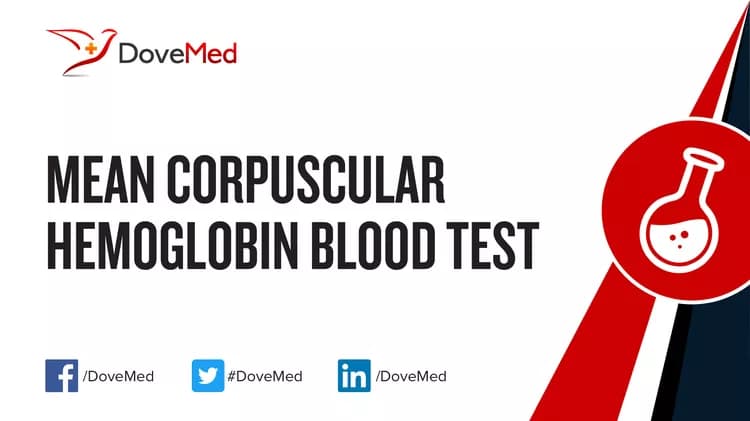What are other Names for this Test? (Equivalent Terms)
- MCH Blood Test
What is Mean Corpuscular Hemoglobin Blood Test? (Background Information)
- Mean corpuscular hemoglobin (MCH) refers to the average amount of hemoglobin (the oxygen-carrying protein) in red blood cells or RBCs
- Together with other tests, MCH is useful in determining anemias, or red blood cell deficiencies. MCH is measured in pictograms, which is 1 trillionth of a gram
- RBCs are the principal ‘gas’ transport vehicles of the body. They supply tissues with oxygen and carry carbon dioxide away to the lungs for excretion
- The number and physical characteristics of red blood cells in blood can change, especially during an illness. For example, defective RBCs may be produced or the body may attack its own RBCs. Thus, RBC tests can yield abundant health information
- A group of tests, together called the complete blood count test, measures different aspects of blood. This includes RBCs, as well as white blood cells and other components.
- The Mean Corpuscular Hemoglobin Blood Test helps determine the mean corpuscular hemoglobin (i.e., the quantity of hemoglobin within a red blood cell). Though limited by itself, the Mean Corpuscular Hemoglobin Blood Test provides information regarding anemias when combined with other tests
What are the Clinical Indications for performing the Mean Corpuscular Hemoglobin Blood Test?
Following are the clinical indications for performing the Mean Corpuscular Hemoglobin Blood Test:
- Routine screening, as part of a complete blood test (CBC)
- Fatigue; pale appearance (palor)
- Enlargement of the spleen (splenomegaly)
- Difficulty adapting to altitude changes
Monitoring the effects or progression of certain conditions such as:
- Chronic blood loss, such as after trauma
- Burns
- Chronic obstructive pulmonary disease (COPD)
- Bone marrow disorders such as polycythemia vera
- Kidney disorder
- Liver disorder
- Bone marrow disorder
- Medications and chemotherapy
How is the Specimen Collected for Mean Corpuscular Hemoglobin Blood Test?
Following is the specimen collection process for Mean Corpuscular Hemoglobin Blood Test:
Sample required: Blood
Process of obtaining a blood sample in adults:
- A band is wrapped around the arm, 3-4 inches above the collection site (superficial vein that lies within the elbow pit)
- The site is cleaned with 70% alcohol in an outward spiral, away from the zone of needle insertion
- The needle cap is removed and is held in line with the vein, pulling the skin tight
- With a small and quick thrust, the vein is penetrated using the needle
- The required amount of blood sample is collected by pulling the plunger of the syringe out slowly
- The wrap band is removed, gauze is placed on the collection site, and the needle is removed
- The blood is immediately transferred into the blood container, which has the appropriate preservative/clot activator/anti-coagulant
- The syringe and the needle are disposed into the appropriate “sharp container” for safe and hygienic disposal
Preparation required: No special preparation is needed prior to the test.
What is the Significance of the Mean Corpuscular Hemoglobin Blood Test Result?
- A high value (greater than 34 picograms or pg) for the Mean Corpuscular Hemoglobin Blood Test may point to a diagnosis of macrocytic anemia
- A low value (less than 27 pg) for the Mean Corpuscular Hemoglobin Blood Test may point to a diagnosis of microcytic and normocytic anemia
The laboratory test results are NOT to be interpreted as results of a "stand-alone" test. The test results have to be interpreted after correlating with suitable clinical findings and additional supplemental tests/information. Your healthcare providers will explain the meaning of your tests results, based on the overall clinical scenario.
Additional and Relevant Useful Information:
- Certain factors interfere with the test. These include pregnancy, alcohol consumption, high altitudes, and hydration status
- The Mean Corpuscular Hemoglobin Blood Test is part of the red blood cell indices blood test
Certain medications that you may be currently taking may influence the outcome of the test. Hence, it is important to inform your healthcare provider of the complete list of medications (including any herbal supplements) you are currently taking. This will help the healthcare provider interpret your test results more accurately and avoid unnecessary chances of a misdiagnosis.
The following DoveMed website link is a useful resource for additional information:
https://www.dovemed.com/common-procedures/procedures-laboratory/red-blood-cell-indices-test/
Please visit our Laboratory Procedures Center for more physician-approved health information:
http://www.dovemed.com/common-procedures/procedures-laboratory/
Related Articles
Test Your Knowledge
Asked by users
Related Centers
Related Specialties
Related Physicians
Related Procedures
Related Resources
Join DoveHubs
and connect with fellow professionals


0 Comments
Please log in to post a comment.